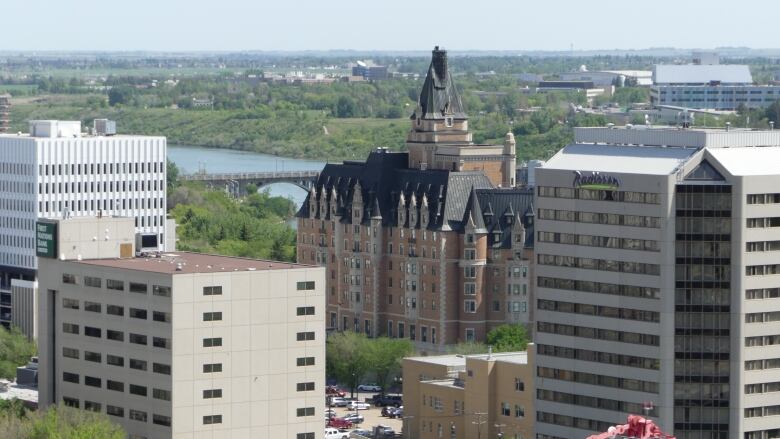Wastewater studies show COVID-19 decrease in Saskatoon, increases in Regina, Prince Albert
North Battleford shows increase of 145 per cent in viral load

The latest study of Saskatoon's wastewater has noted a drop in coronavirus particles, which could mean a reduction in new cases. Meanwhile similar studies in other cities in the province sawincreases.
On Monday, the Global Institute for Water Security at the University of Saskatchewan released its weekly report on wastewater taken from three cities: Saskatoon, North Battleford and Prince Albert.
In Saskatoon, researchers found a 16 per cent week-over-week decrease in viral RNAtaken from sewage samples from the city's wastewater plant for the period ending Sept. 29.
Since people with COVID-19 shed coronavirus particles in their feces, researchers can use the data to predict whether the number of new infections will be going up or down.
The previous week's samples had showna 99 per cent week-over-week increase.
Researchers expect it will take seven to 10 days for the results predicted to manisfest in new cases being diagnosed.
In Prince Albert, researchers found an increase of 19 per cent, based on the average of three daily measurements up to Sept. 26. There was no update from Prince Albert last week due to issues with the samples received.
North Battleford's study found an increase of 145 per cent in viral load compared to the previous week.
In a separate study conducted by the University of Regina, researchers found viral levels in that city were the highest recorded since May, and have been on the increase since August. However, the study said levels of the virus were still considered moderate.
Researchers saidvaccinations make it difficult to tell how many new infections will result in documented COVID-19 cases, as some people may be infected and never have symptoms.
In all three cities, researchers only found the delta variant of COVID-19 in samples.
As usual, researchers will be sharing their information with the provincial government and health officials.












_(720p).jpg)


 OFFICIAL HD MUSIC VIDEO.jpg)
.jpg)



























































































